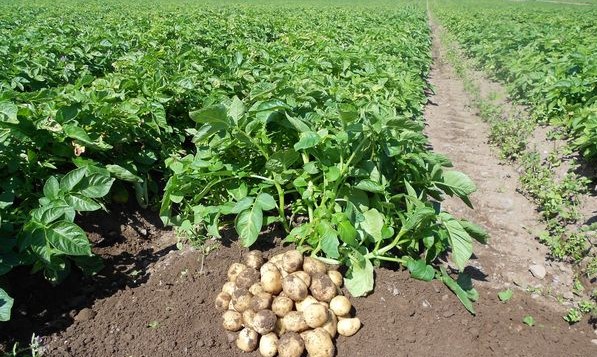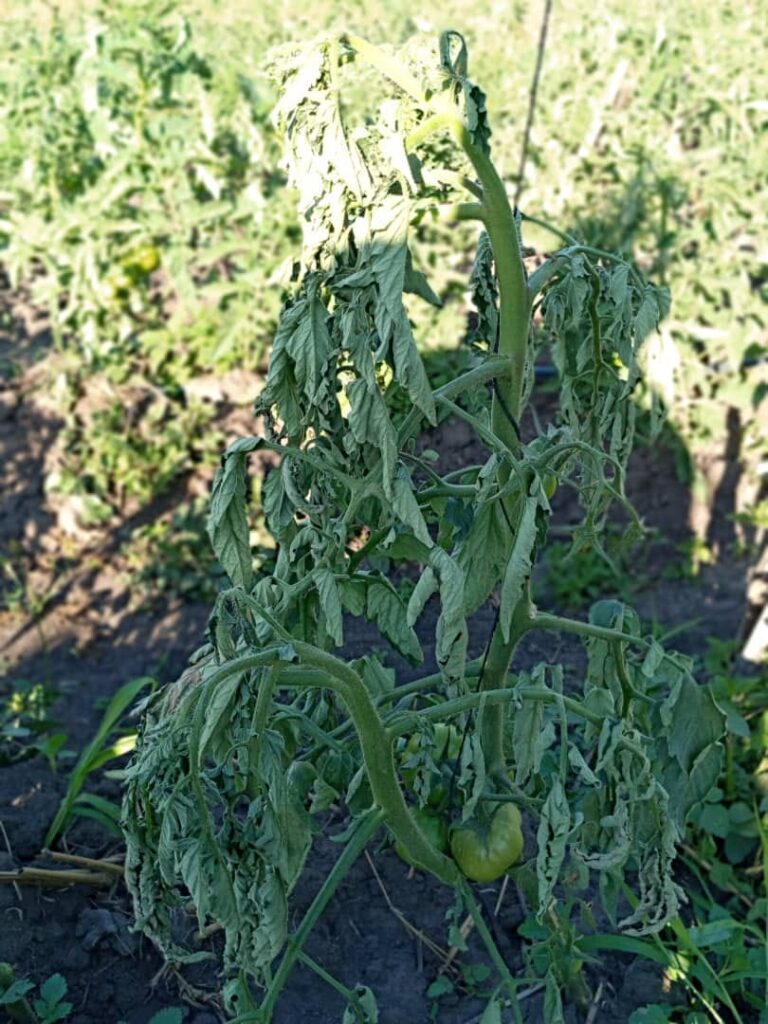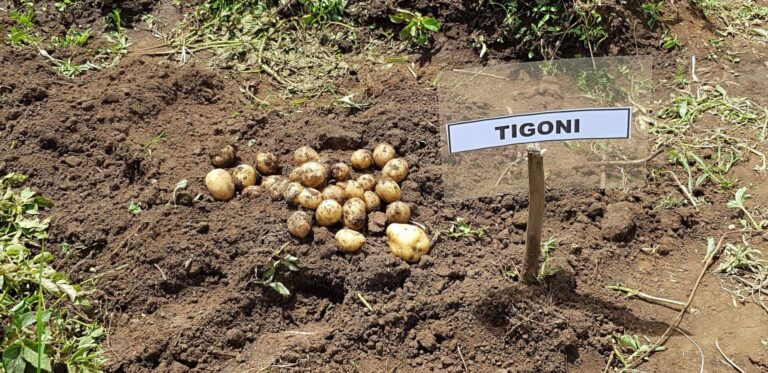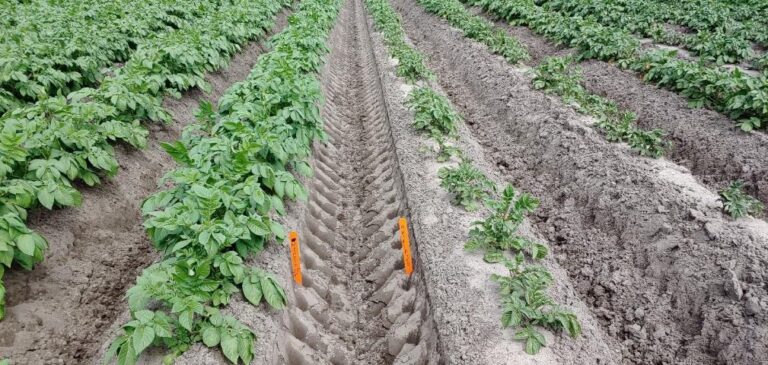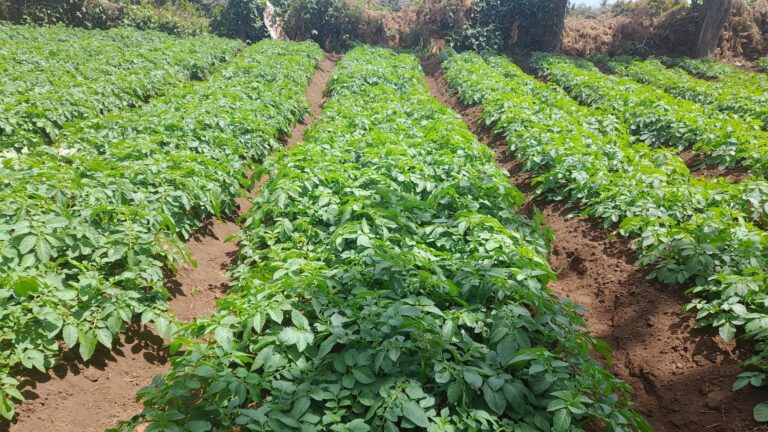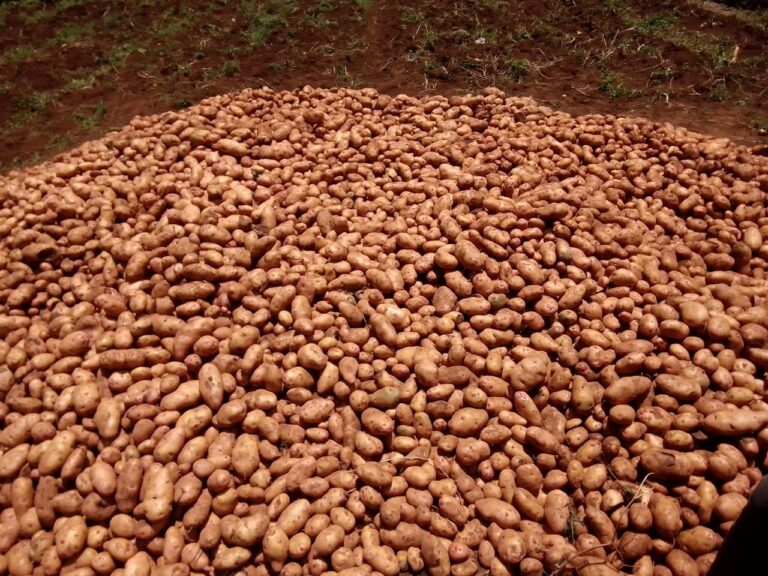The Role of Potassium in Potato Crop Production
Potassium plays a pivotal role in potato crop production, affecting various aspects of plant growth and development. From enhancing photosynthesis and improving water use efficiency to promoting tuber formation and quality, potassium ensures robust yields and high-quality potatoes.
Its role in disease resistance and stress tolerance further underscores its importance in sustaining potato productivity under diverse environmental conditions.
Understanding these dynamics helps growers implement targeted fertilization strategies to optimize potassium levels, thereby ensuring healthy and productive potato crops.
Check the critical role of potassium in potato crop production, influencing growth, yield, quality, disease resistance, and stress tolerance.
Learn effective strategies for optimizing potassium levels to maximize potato productivity and marketability.
This article delves into the importance of potassium in potato production, examining its impact on yield, quality, disease resistance, and overall plant health.
The Role of Potassium in Potato Growth
Enhancing Photosynthesis and Energy Production
Potassium is integral to the process of photosynthesis. It helps in the formation of adenosine triphosphate (ATP), which is essential for energy transfer within the plant. By facilitating efficient photosynthesis, potassium ensures that the potato plants have enough energy to support growth and development.
Improving Water Utilization
Potassium regulates the opening and closing of stomata, which are tiny pores on the leaf surface. This regulation helps in controlling water loss through transpiration and enhances water use efficiency. In environments with limited water availability, adequate potassium levels can significantly improve the drought resistance of potato plants.
Nutrient Transport and Assimilation
Potassium aids in the transport of nutrients, sugars, and starches within the plant. This efficient transport is vital for the formation and enlargement of tubers, leading to better yield and size uniformity. Potassium also enhances the assimilation of other essential nutrients, promoting overall plant health.
Impact of Potassium on Potato Yield
Increased Tuber Size and Weight
Studies have shown that adequate potassium levels are directly correlated with increased tuber size and weight. Potassium enhances cell expansion and division, which are critical processes for tuber development.
As a result, potato plants with sufficient potassium produce larger and heavier tubers, contributing to higher yields.
Uniformity in Tuber Size
Uniform tuber size is desirable for both fresh market sales and processing. Potassium ensures that tubers develop consistently, leading to a more uniform crop. This uniformity simplifies harvesting and processing operations, reducing waste and increasing marketable yield.
Enhanced Tuber Numbers
Potassium not only affects the size of individual tubers but also influences the number of tubers produced per plant. Adequate potassium nutrition supports the development of a robust root system, which can explore a larger soil volume for nutrients and water, ultimately leading to an increased number of tubers.
Quality Improvements with Potassium
Improved Skin Quality
Potato skin quality is an important factor for market acceptance and storage life. Potassium strengthens cell walls, which helps in producing tubers with smooth, defect-free skin.
This not only enhances the visual appeal of the potatoes but also reduces susceptibility to mechanical damage during harvesting and handling.
Higher Dry Matter Content
Potassium is crucial for the accumulation of dry matter in potato tubers. Higher dry matter content is associated with better texture and taste, making the potatoes more suitable for processing into products like chips and fries. It also improves the cooking quality of fresh market potatoes.
Reduced Incidence of Internal Defects
Internal defects such as hollow heart and black spot can significantly reduce the market value of potatoes. Potassium plays a role in minimizing these defects by ensuring proper development and function of the plant’s vascular system.
This leads to the even distribution of nutrients and water within the tubers, reducing the likelihood of internal issues.
Disease Resistance and Stress Tolerance
Enhanced Disease Resistance
Potassium is known to boost the plant’s resistance to various diseases. It strengthens cell walls, making it harder for pathogens to invade and spread within the plant.
Additionally, potassium activates certain enzymes and proteins involved in the plant’s defense mechanisms, providing an added layer of protection against diseases like late blight and common scab.
Tolerance to Environmental Stresses
Potato plants often face environmental stresses such as drought, heat, and salinity. Potassium helps in mitigating the effects of these stresses by regulating osmotic balance and water retention within plant cells. This improves the plant’s ability to cope with adverse conditions and maintain productivity.
Potassium Deficiency Symptoms in Potatoes
Recognizing potassium deficiency in potato plants is crucial for timely intervention. Common symptoms include:
- Yellowing of Leaf Margins: Older leaves exhibit yellowing around the edges, which can progress to browning and necrosis.
- Weak Stems: Potassium-deficient plants often have weak stems that are prone to lodging.
- Poor Tuber Development: Tubers may be small, misshapen, and have poor skin quality.
- Increased Susceptibility to Disease: Plants become more vulnerable to diseases and pests.
Potassium Fertilization Strategies
Soil Testing and Analysis
Before applying potassium fertilizers, it is essential to conduct soil testing to determine the existing potassium levels and soil properties. This helps in formulating an appropriate fertilization strategy that meets the specific needs of the potato crop.
Balanced Fertilization
Potassium should be applied in balance with other essential nutrients like nitrogen and phosphorus. Imbalanced fertilization can lead to nutrient antagonism, where the excessive application of one nutrient inhibits the uptake of another. A balanced fertilization approach ensures that all nutrients are available in the right proportions for optimal growth.
Application Methods
- Broadcast Application: Potassium fertilizers can be spread uniformly over the field and incorporated into the soil before planting.
- Band Application: Applying potassium in bands near the seed or root zone ensures efficient uptake by the plants.
- Fertigation: In irrigated systems, potassium can be applied through the irrigation system, allowing for precise control over the timing and amount of fertilizer.
Sources of Potassium Fertilizers
Several potassium fertilizers are available for use in potato production, including:
- Potassium Chloride (KCl): The most common potassium fertilizer, also known as muriate of potash.
- Potassium Sulfate (K2SO4): Preferred when sulfur is also needed and for crops sensitive to chloride.
- Potassium Nitrate (KNO3): Provides both potassium and nitrogen, suitable for foliar application..
Frequently Asked Questions
Why is potassium important for potato crops?
Potassium is crucial for photosynthesis, water regulation, nutrient transport, and overall plant health, directly impacting yield and quality.
How does potassium affect potato yield?
Potassium increases tuber size, weight, and number, leading to higher yields. It also ensures uniformity in tuber development.
What are the signs of potassium deficiency in potatoes?
Symptoms include yellowing of leaf margins, weak stems, poor tuber development, and increased susceptibility to diseases.
How can I prevent potassium deficiency in my potato crop?
Prevent deficiency by conducting soil tests, applying balanced fertilization, and using appropriate potassium fertilizers based on soil and crop needs.
What types of potassium fertilizers are available for potato crops?
Common fertilizers include potassium chloride (KCl), potassium sulfate (K2SO4), and potassium nitrate (KNO3), each offering unique benefits.
Can potassium improve disease resistance in potatoes?
Yes, potassium strengthens cell walls and activates defense mechanisms, enhancing resistance to diseases and environmental stresses.
